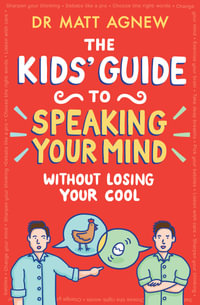“Boom! Headshot!”
In family rooms all across America, millions of children and teenagers are enjoying violent video games. Popular games like Call of Duty, Halo, and Grand Theft Auto place players in elaborate fictional worlds—often with a gun in their hands.
The media and the government are quick to point fingers when it comes to young perpetrators of violence. If it becomes apparent that school shooters, for instance, may have enjoyed violent games at some point—well, those games were clearly the culprit or at least a warning sign, right?
But the problem with this conclusion is that it’s not based on facts. Here’s what they’re not telling you: Only a small minority of school shooters played violent video games.
If that surprises you, you’re not alone—the national dialogue around these games has become skewed and biased. On the flip side, most well-adjusted children and teenagers regularly play violent video games, while never exhibiting violent behavior in real life. What’s more, spikes in sales of violent games actually correspond with decreased rates of violent crime.
The media and commentators are not giving you the whole story, and it’s time for a new conversation about these games and their role in our children’s lives.
In Moral Combat, psychology experts explore how video games—including those considered violent—actually have a positive social impact for today’s youth and offer a comprehensive overview of their history, culture, and scientific research. Markey and Ferguson have been on the frontline of the violent video game debate for years, and together, they debunk the stark picture media, politicians, and other personalities tend to paint in order to sway public opinion about the impact of gaming.
The general public has been misled into believing that violent video games are responsible for horrific acts of violence. With complete honesty and extensive research, the informative and often-entertaining Moral Combat lays out the facts in order to reframe this important discussion.
Industry Reviews
"
""A remarkably smooth and fun read that blends anecdote and empirical data.""
—American Journal of Play
""Moral Combat is more than a clever play on words or even a defense of an entire industry. It's an important reminder of the difference between fearmongering nonsense and proper research and reflection.""
—San Francisco Book Review
""A fact-filled, persuasive, and witty debunking of the cyclical moral panic about video games.""
—Steven Pinker, professor of psychology at Harvard University and author of How the Mind Works and The Better Angels of Our Nature
""A groundbreaking and vitally important book. It gets under the hood of how games actually work on our brains, and in the process it tells us more than any number of sensational news articles. This should be required reading for anyone who loves games or who loves someone who loves games . . . which is to say, everyone.""
—Greg Toppo, author of The Game Believes in You: How Digital Play Can Make Our Kids Smarter
""As a filmmaker who's spent much of my career working on video game-related content, it's refreshing to finally see a book about games that gets it right.""
—Jeremy Snead, founder of Mediajuice Studios and writer/director of Video Games: The Movie and Unlocked: The World of Games, Revealed
""Even readers familiar with video game politics and history will find something to gasp about. And stressed parents may finally understand what their kids get out of those games, and how to manage them better.""
—Cheryl K. Olson, ScD, coauthor of Grand Theft Childhood: The Surprising Truth About Violent Video Games and What Parents Can Do and principal investigator for a major government-funded study of video games and youth
""Gamers should buy this book for their parents, and parents should calm down teachers and pediatricians with a copy. Anyone interested in a great, skeptical takedown of bad science should get their own copy.""
—James C. Coyne, professor emeritus of psychology and psychiatry at the University of Pennsylvania
""This book delivers healthy doses of skepticism and scientific insights that broaden our understanding of 21st century play. From political horse-trading to weak science, this book is a must-read for anyone interested in video games.""
—Andrew Przybylski, PhD, experimental psychology department research fellow at the University of Oxford
"

























